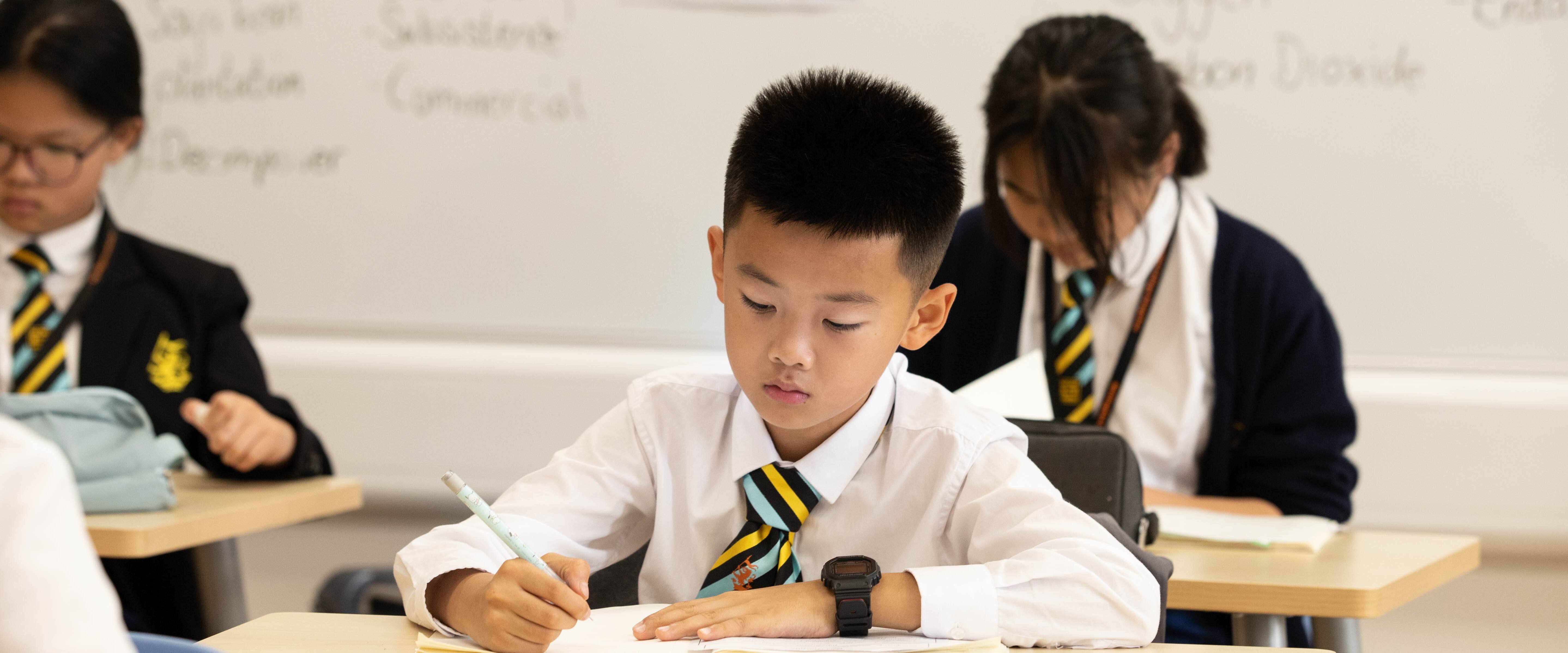
Eva Yu
Grade 1 Lead
Mathematics is a universal language used in various fields to support scientific and technological developments. The National Mathematics Curriculum Standards puts forward three key competencies:
observing the real world with mathematical eyes
thinking about the real world with a mathematical mind
expressing the real world with mathematical languages
These competencies coincide with our mathematics teaching philosophy at Hiba Lower Primary.
Developing a mathematical growth
mindset
In mathematics, the logical and independent thinking process proceeds the result. In Hiba, we want to promote a way of thinking that children use to understand and solve problems. We aim to help our children in Lower Primary to become mathematicians instead of focusing only on memorising facts and solving equations.
A Hiba LP mathematician is a problem solver who raises, investigates, and explores solutions to questions. We encourage them to find different ways to arrive at an answer. In our Maths classes, we link facts to pupils' daily lives and projects to inspire them to see the mathematics hidden everywhere in our routine life, which sparks their interest and willingness to participate in learning. While applying their existing knowledge, they learn something new and deepen their understanding. Parents can also involve their children in the family decision-making process, such as making plans for a family trip.
Mastering mathematical language
A Hiba Lower Primary mathematician can communicate mathematically by using mathematical vocabulary, numbers, symbols, or pictures to explain various scenarios, sharing how they arrive at an answer, and listening to others' different ways of thinking. We engage children in mathematic conversations so they can communicate their conclusions with others, listen to the arguments, and justify their decisions using reasoning skills. To help children learn to communicate mathematically, parents can ask them to explain a maths problem in daily life. For example, how are you going to share a pizza with your friends? Furthermore, you can also ask your child to draw a picture or show the answer.
Key to our maths teaching
A Hiba LP mathematician can demonstrate reasoning ability, thinking logically, finding similarities and differences between things, making connections with different topics, and making choices according to their findings. We incorporate children's prior knowledge to bridge the unknown with their knowledge base. We also believe wrong answers can help, too. While accuracy is always what we look for in learning maths, a wrong answer helps us discover more about children's thinking processes and the reasoning behind them. For parents, the only thing to do to help children in this regard is to listen patiently. It allows adults to figure out children's detailed reasoning processes.
We hope our mathematicians explore the infinite possibilities of this world by using the knowledge, skills and ways of thinking they have been learning in and out of the classroom.